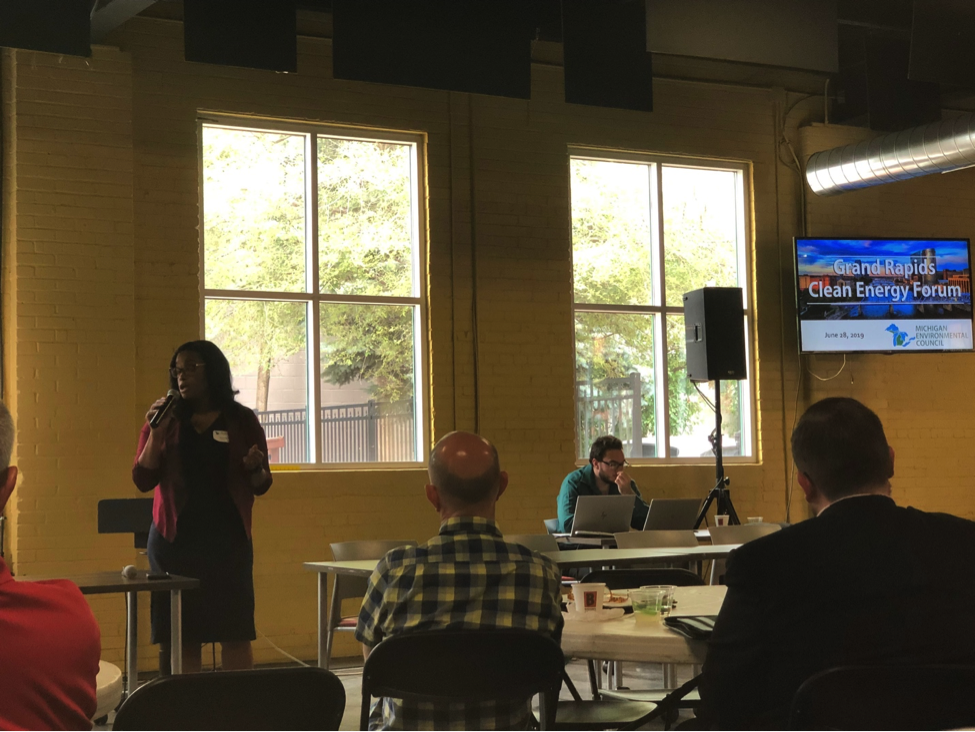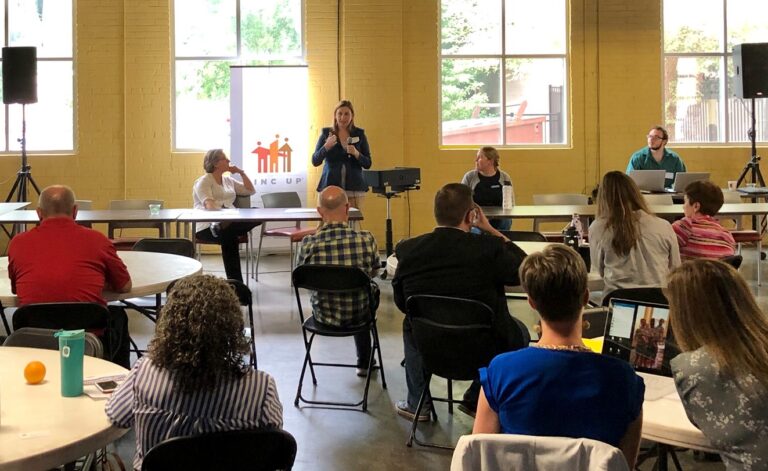The life of an energy consumer can feel powerless. Your rates go up every year. Your monthly bill is determined by an indecipherable, dizzyingly complicated tariff. You endure long hold times and leave ignored messages when you contact your utility. You constantly hear about how energy use is killing the planet and that fixing climate change is far too big for one person to have any effect.
While these experiences are common, the individual consumer is not powerless. At the Michigan Environmental Council’s Grand Rapids Clean Energy Forum on June 28th, at which Citizens Utility Board of Michigan Executive Director Amy Bandyk was among the featured speakers, presentations and conversations revealed several concrete steps individual Michiganders can take to fight for more affordable and cleaner energy.
A huge amount of power to decide Michigan energy issues is vested in the three-member Michigan Public Service Commission (MPSC), which approves, among other things, how much the state’s investor-owned utilities like DTE Energy and Consumers Energy can charge their customers. But the MPSC does respond to public pressure, as Michigan Environmental Council’s Energy Policy & Legislative Affairs Director Charlotte Jameson explained at the forum (Jameson also serves on the board of directors of CUB of MI.)
Amy Bandyk presented the audience with sobering facts from a forthcoming CUB of Michigan study on how the state has some of the highest electricity rates in the nation, particularly for residential customers. To make things worse, those high rates also come with subpar utility performance on key reliability metrics, Bandyk said.
Baked into those high bills are the costs of a large amount of power infrastructure, including aging coal plants, primarily used only to keep the lights on when electricity demand is at its peak, like the hottest days in the middle of summer. “If we can do things to reduce peak demand, we can get rid of all those coal plants that are laying around,” Jameson said. One of the most significant changes would be wider adoption of time-of-use rates, which give consumers an incentive to shift electricity use to off-peak times.
Time-of-use rates are being slowly rolled out by some Michigan utilities. Public outcries from regular utility customers—calling or writing letters to the MPSC, or submitting comments on MPSC cases online—can push the MPSC to act faster on issues like time-of-use rates, Jameson said.
The new Gov. Whitmer administration could be another source of pressure. Dr. Brandy Brown, the newly appointed climate and energy advisor at the Michigan Department of Environment, Great Lakes and Energy, also spoke at the Grand Rapids Clean Energy Forum. One of the most important policy changes she would like to see, Brown said, is for the customer rate structure to be adjusted.

Beyond the rate structure, more energy efficiency upgrades to cut building energy use and greater penetration of solar and wind power (which are quickly falling in cost) are other changes that can help with high rates. CUB of Michigan is a voice for these kinds of changes. You can help CUB influence the MPSC by signing up as a certified member here. CUB needs a minimum number of certified members to be able to intervene in MPSC cases.
Another way customers have been taking power into the own hands is through rooftop solar arrays. Rooftop solar took a hit earlier this year when the MPSC approved a new tariff for DTE Energy that effectively ended net metering, the process by which rooftop solar users are compensated for their excess energy at the full retail rate, and replaced it with a rate system that does not provide nearly as much compensation.
Here again, however, are opportunities for those who care about distributed solar to get involved. Soon, Consumers Energy will be proposing its own distributed generation tariff. Customers should speak out to ensure this tariff is more favorable toward rooftop solar than DTE’s, Environmental Law & Policy Center Senior Attorney Margrethe Kearney said at the forum. “Let Consumers know how important it is for consumers to be compensated,” she said.
Right now, legislators are discussing new bills in response to the net metering controversy, according to state Rep. Rachel Hood of the 76th House District in Grand Rapids. You can let your state representative or senator know that distributed generation is an important issue.

